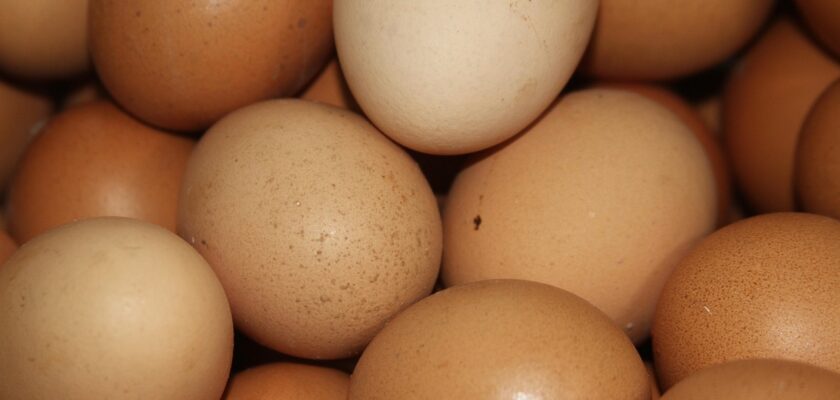Introduction to Water Glassing Eggs
Ever wondered how people kept eggs fresh long before refrigerators were a thing? Welcome to the fascinating world of water glassing eggs — an ancient preservation technique that’s making a major comeback. Water glassing, or preserving eggs in a lime-based solution, is a smart, natural, and chemical-free way to store eggs for up to a year!
Thanks to the homesteading revival and self-sufficiency movements, water glassing is no longer a lost art. It’s an easy, cost-effective method that every backyard chicken owner, prepper, or DIY enthusiast should master. Let’s crack this topic wide open!
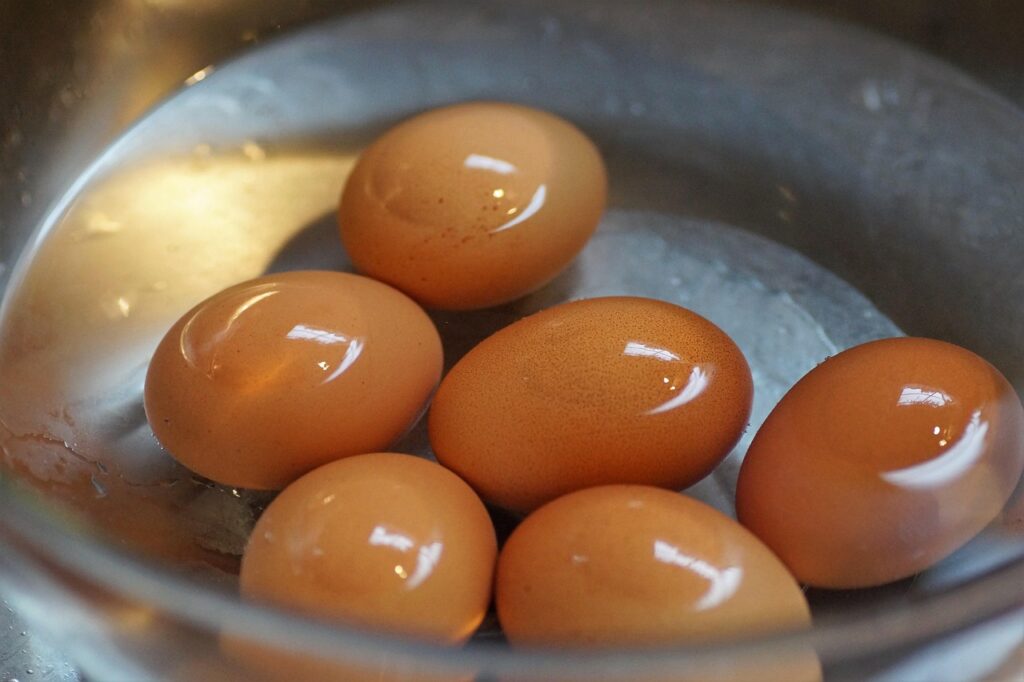
What You Need to Water Glass Eggs
Before you jump in, it’s crucial to have the right supplies lined up:
- Fresh, unwashed eggs (no store-bought or washed eggs)
- Pickling lime (calcium hydroxide)
- Clean water (distilled or boiled and cooled)
- Food-grade bucket or large glass jar
- Gloves and a stirring utensil
Pro Tip: Stick to hydrated lime labeled “food-grade” to ensure safety. Avoid construction lime or any product not intended for food use.
Preparing Fresh Eggs for Water Glassing
You can’t just throw any old egg into a lime solution and hope for the best! Here’s what matters:
- Select only clean, fresh, unwashed eggs.
Natural “bloom” (the thin coating on eggs) must stay intact because it acts as a protective barrier against bacteria. - No cracks allowed.
Examine eggs carefully. Even hairline cracks can ruin your entire batch. - Do not wash!
If an egg is visibly dirty, it’s best not to use it at all for water glassing.
Keeping the eggs pristine ensures a safer, longer-lasting result.
Step-by-Step Guide to Water Glassing Eggs
Here’s how you can water glass eggs successfully at home:
- Prepare the solution.
Mix 1 ounce of pickling lime per 1 quart of water. Stir until dissolved. - Fill your container.
Add enough solution to cover the eggs fully once they’re placed inside. - Add the eggs.
Carefully place eggs pointy side down into the solution. - Cover and store.
Seal the container loosely (to allow gas release) and store in a cool, dark place.
Keyword Reminder: You now know the basics of how to water glass eggs correctly!
Best Storage Conditions for Water Glassed Eggs
Environment matters just as much as preparation! To maximize shelf life:
- Temperature: Keep between 45°F to 55°F (7°C to 13°C).
- Light: Store in complete darkness if possible.
- Container: Use glass, ceramic, or food-grade plastic. Avoid metal, as it can react with the lime.
If you meet these conditions, your eggs can last beautifully for up to 12-18 months without refrigeration.
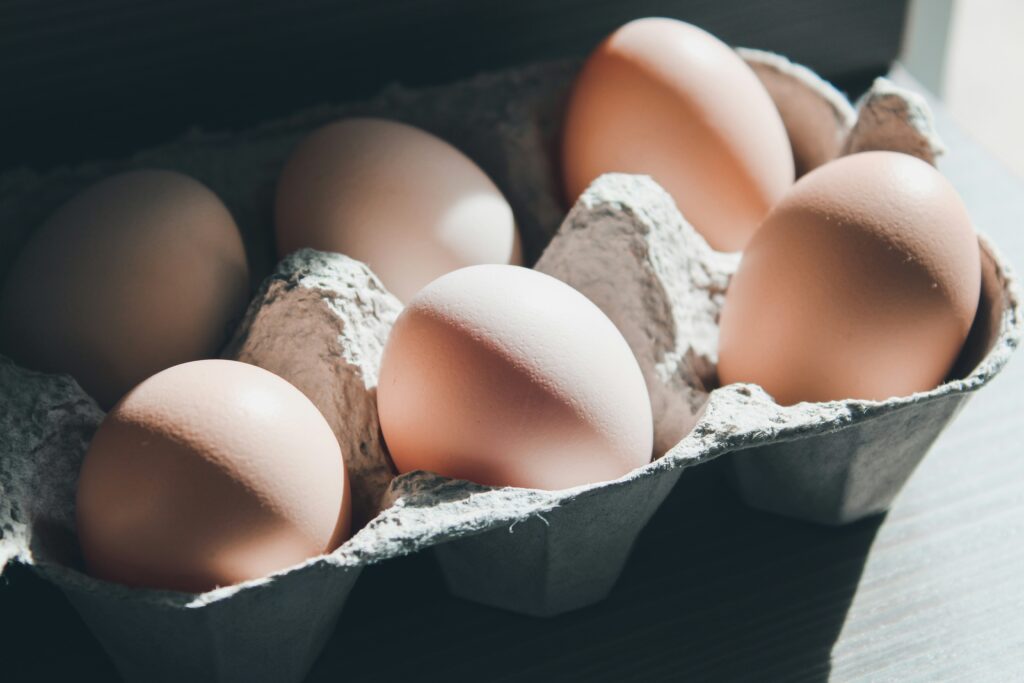
Photo by Siora Photography on Unsplash
How Long Do Water Glassed Eggs Last?
A well-glassed egg is practically a time capsule! Properly preserved, they can stay fresh for:
- Up to 12 months under normal conditions
- Up to 18 months under optimal conditions (constant cool temperature)
Warning Signs:
Always check before use. If the egg smells bad, looks discolored, or feels slimy after cracking, discard immediately.
Safety Tips for Water Glassing Eggs
Safety first, always:
- Use only farm-fresh, unwashed eggs.
- Avoid eggs with any visible defects.
- Mix the solution correctly — too strong can damage eggs, too weak won’t preserve them.
- Use clean, sterilized containers to minimize contamination risks.
Important: Don’t skip gloves while handling pickling lime! It can irritate your skin.
Using Water Glassed Eggs in Your Cooking
Wondering if water-glassed eggs taste weird? Honestly — not at all!
- Texture: Slightly firmer whites but very natural overall
- Taste: Nearly identical to fresh eggs
- Best uses: Scrambling, baking, omelets, and even custards
Tip: If you’re baking cakes, let the eggs come to room temperature first for the fluffiest results!
Common Mistakes to Avoid When Water Glassing Eggs
Even pros can slip up! Watch out for these blunders:
- Washing eggs before glassing. (Destroys protective bloom.)
- Using tap water with chlorine. (Always use distilled or boiled water.)
- Improper lime measurements. (Always follow the 1 oz to 1 quart rule.)
- Storing in hot environments. (Shortens shelf life dramatically.)
Fix these, and you’ll be golden.
Troubleshooting Water Glassing Problems
Problem: Solution is cloudy.
Cause: Lime hasn’t dissolved properly or contamination. Stir gently or replace the solution.
Problem: Smelly eggs.
Cause: One bad egg can spoil a batch. Check each egg individually before storing.
Problem: Cracked eggs mid-storage.
Cause: Handling eggs too roughly or using compromised eggs. Always inspect carefully before starting.
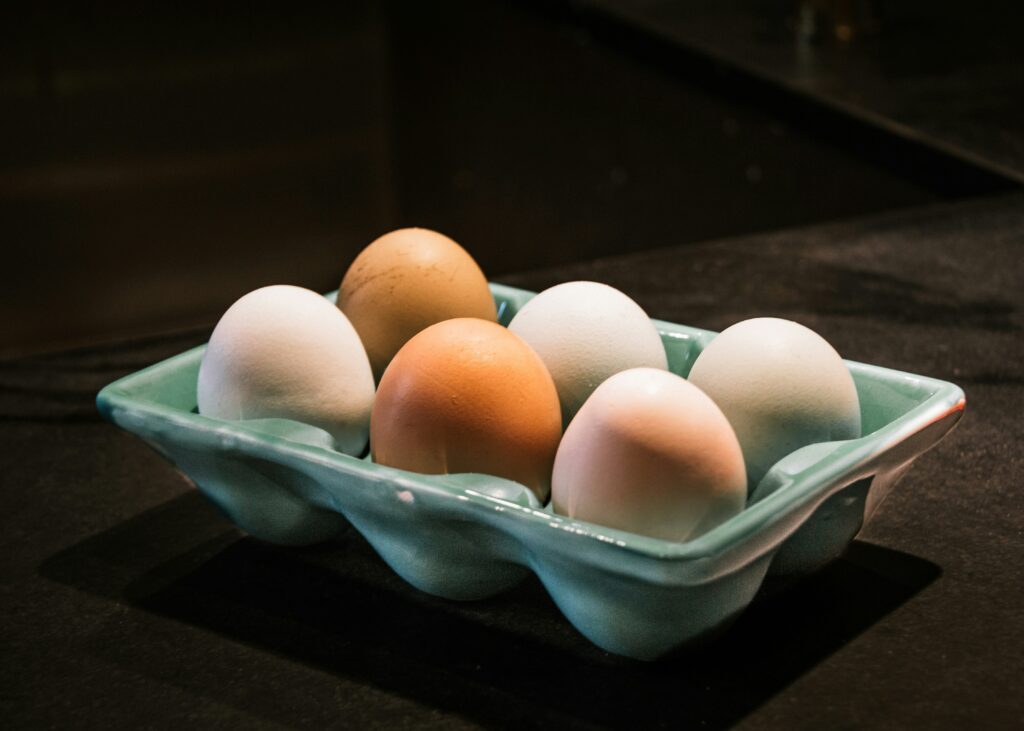
Photo by Ryan ODee on Unsplash
Benefits of Water Glassing vs. Other Preservation Methods
Compared to refrigeration or freezing, water glassing eggs wins big in many ways:
| Method | Pros | Cons |
| Water Glassing | No electricity needed, long shelf life, natural | Requires careful prep |
| Refrigeration | Easy and fast | Short shelf life (6 weeks max) |
| Freezing | Long storage (up to a year) | Changes egg texture |
Water glassing shines as the best long-term natural method — especially during power outages or rural living!
Historical and Modern Uses of Water Glassed Eggs
Historically, pioneers used this method to survive harsh winters when hens laid fewer eggs.
Today, it’s beloved by:
- Homesteaders seeking self-reliance
- Preppers building food security
- DIYers valuing traditional skills
Fun Fact: During World War I, water-glassed eggs were included in government food guides for families!
FAQs About Water Glassing Eggs
1. Can you use store-bought eggs for water glassing?
No. Store-bought eggs are washed and sanitized, removing the protective bloom needed for safe preservation.
2. How do you know if a water-glassed egg has gone bad?
Perform a smell test after cracking — a rotten odor means it’s unsafe. Also, any unusual texture or color is a red flag.
3. Do you have to refrigerate water-glassed eggs?
Nope! As long as they are stored correctly in a cool, dark place, refrigeration isn’t needed.
4. How long should eggs stay submerged?
The eggs should stay submerged the entire time until you’re ready to use them — even if that’s 12 months later.
5. Can you reuse the lime water for another batch?
Not recommended. Once used, the solution could be contaminated.
6. What’s the best container for water glassing eggs?
Food-grade plastic buckets, large glass jars, or ceramic crocks are ideal choices. Metal containers should be avoided.
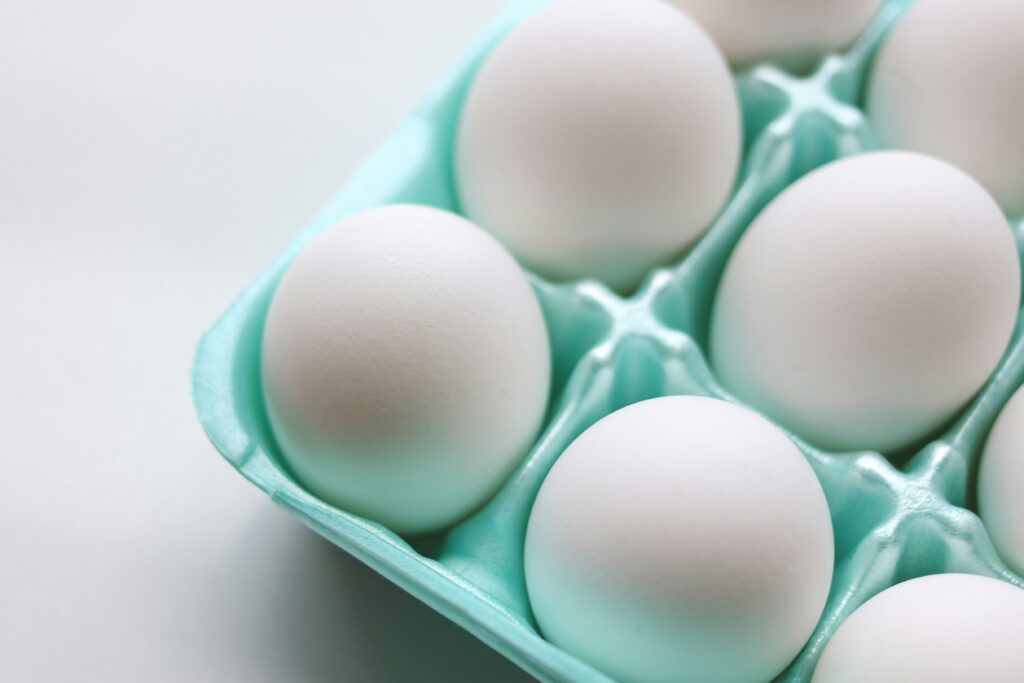
Photo by natasha t on Unsplash
Conclusion
Mastering how to water glass eggs is a timeless skill that offers a reliable, natural solution to food storage. With a little preparation and care, you can enjoy fresh-tasting eggs year-round without touching a refrigerator.So whether you’re building a food supply, living off-grid, or just love old-school methods, water glassing is a must-try technique. Happy preserving!
